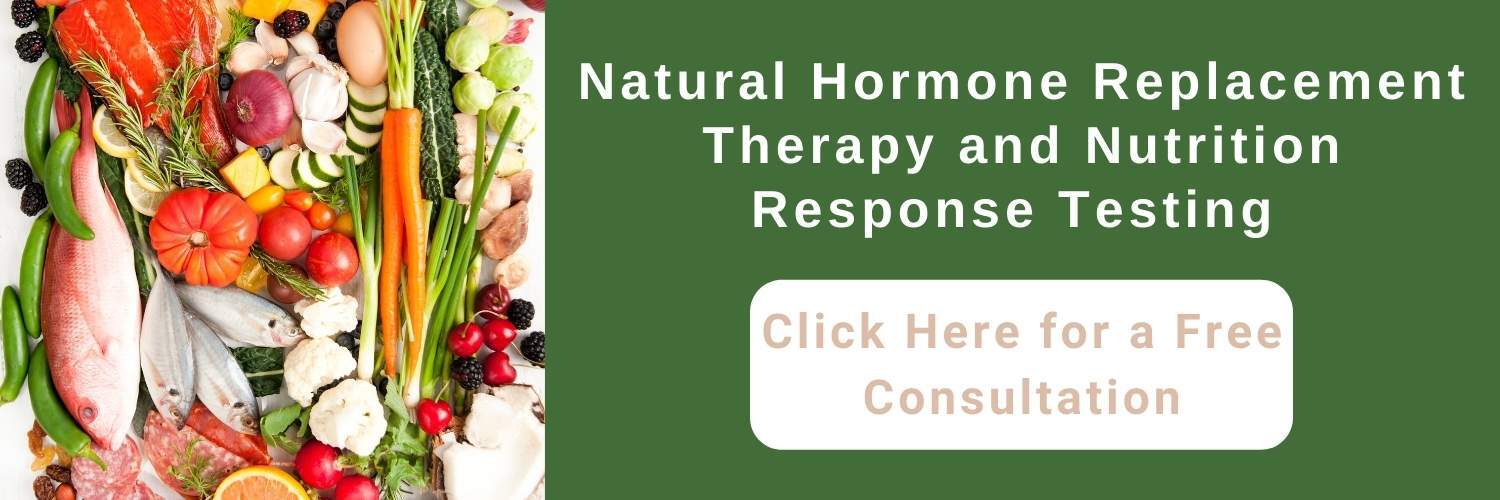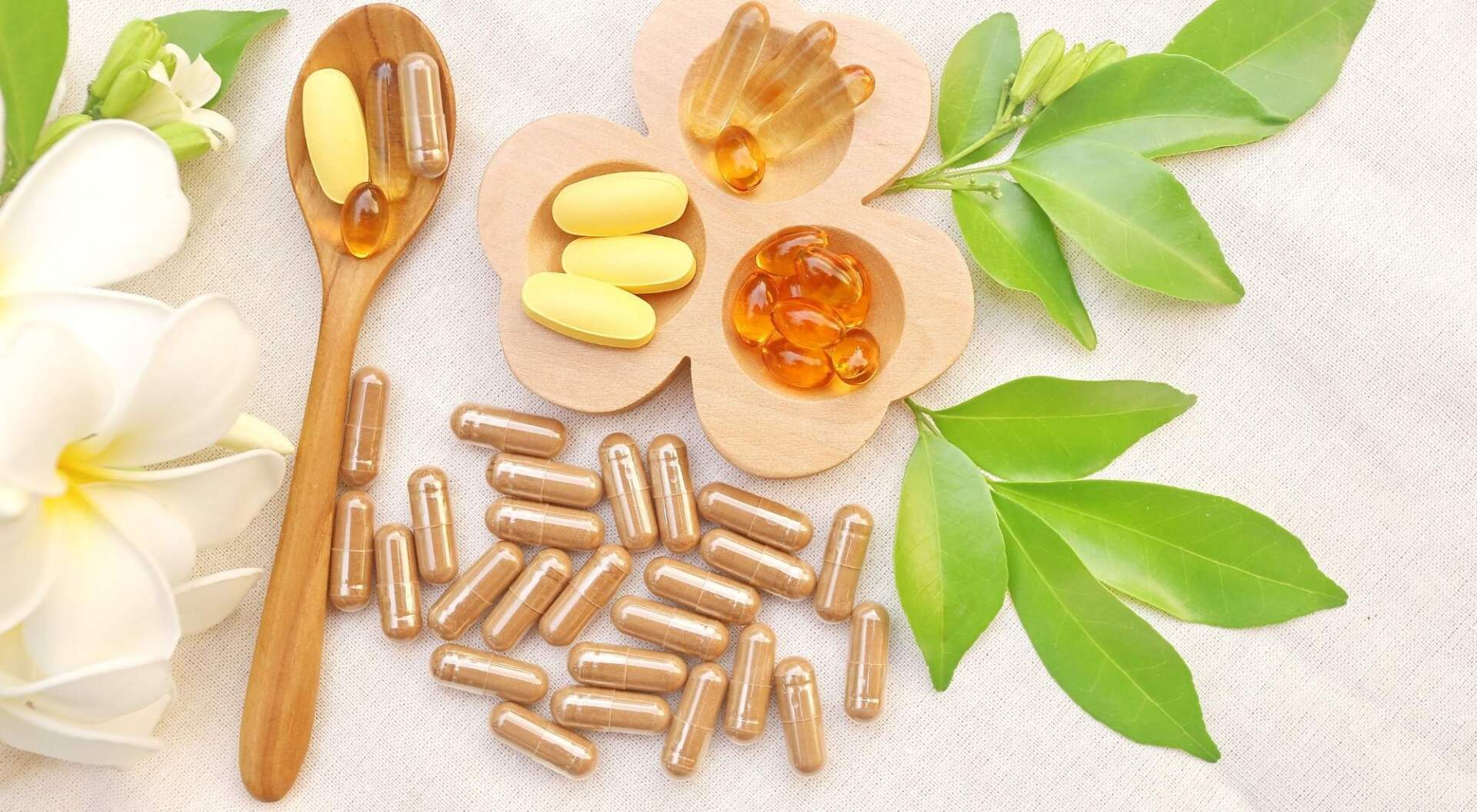A Look at Natural Hormone Therapy After Hysterectomy: Types, Benefits, and Suggestions
"The content below is not intended to be a substitute for professional medical advice, diagnosis, or treatment. Always seek the advice of your physician or other qualified health provider with any questions you may have regarding a medical condition."
There’s this moment when you find out you have to have a hysterectomy where you just sit and wonder what is going to happen to your body.
Are you going to go through menopause? You’re too young for that, right? Right?!
You don’t want to face hot flashes and weight gain and low sex drive. Those are all things that older women face. Why should you have to deal with them now?
You’re probably wondering, “How can I balance my hormones after a hysterectomy?”
Take a deep breath, it’s going to be ok. We have answers for you.
There are natural hormone therapy options that can help you, no matter what stage of life you are in.
We’ll cover the types, benefits, and offer some suggestions to help you feel more in control of your changing body.
Table of Contents
Is Natural Estrogen Replacement After a Hysterectomy Possible?
After a hysterectomy, your body may need support to balance hormones. This is where hormone replacement therapy can be beneficial.
Using synthetic hormones is not the only option, though.
Natural hormone replacement therapy uses plants and herbs to support the body and help relieve the symptoms of hormone imbalance.
Different treatments may be more helpful for you than others. Each woman is unique and has specific concerns. A knowledgeable professional can help you weigh your options.
There are two main types of natural HRT:
- Bioidentical HRT
- Synthetic hormones made from plant estrogens are used to replace your natural hormones.
- Traditional natural HRT
- Plants and supplements are used to relieve hormonal symptoms.
There is no one-size-fits-all remedy, so
knowing your body’s chemistry and understanding how your body is reacting to imbalance can help you make an informed decision.
Why Natural Hormone Replacement Therapies May Be Preferred Over Traditional Medications
The use of synthetic hormones is fairly common, but that doesn’t make it the best option for every woman.
Hormone Replacement Therapy can have negative side effects, such as:
- Nausea
- Bloating
- Headaches
- Weight gain
- Changes in mood
- Breast tenderness
- Vaginal bleeding
- Higher risk of stroke
- Increased risk of blood clots
- Possible higher risk of breast cancer
Your body may not be able to process the synthetic hormones well. Many women find that natural methods are more gentle and less problem-causing than chemical solutions.
More and more evidence has shown that synthetic hormone replacement can increase a woman’s risk of certain cancers.
Many women want to avoid these risks, of course, and look for a more natural way to help their bodies heal and adjust after a hysterectomy.
Some common reasons women choose natural hormone replacement therapy after hysterectomy include:
- Better sleep
- Healthier skin
- Fewer hot flashes
- Stronger sex drive
- Reduced bloating
- Thicker, healthier hair
- Improved mental clarity
- Higher energy level during the day
- Fewer feelings of anxiety and depression
Whatever your reason for seeking
natural hormone replacement therapy after complete hysterectomy,
you may just find the added benefits of overall wellness.
What Is the Best Natural Alternative to HRT?
Possibly the best natural alternative to HRT is an individualized approach with a caring provider.
Every woman is a beautifully unique being with specific needs.
Talking to a licensed professional, like a nutritionist, can help you find the individualized approach that is designed to address your changing symptoms.
As your symptoms change, so should your care.
You know your body better than anyone, so talk to your provider about any changes that you notice so that steps can be taken to help you feel more comfortable in your own skin.
Some common approaches to natural hormone replacement therapy include:
- Herbal therapy
- Dietary supplements
- Lifestyle changes
- Diet
- Exercise
Herbal Therapy
Studies have been done to show the effectiveness of herbs in reducing the symptoms of menopause.
Herbs can be used as teas, taken as supplements, or in a variety of other methods.
Instead of navigating the world of herbs alone, a professional can help you learn which herbs can help with your symptoms and work with you to choose the regimen that best suits your needs.
Herbal Choices
Creating an individualized natural hormone replacement treatment plan with herbs can give you a sense of control again.
You can choose herbs that focus on exactly what you need instead of addressing problems you don’t even have.
These herbs, along with others, can help you minimize symptoms and serve as an alternative to hormone replacement:
- Sage
- Lemon balm
- Valeriana Officinalis
- Black cohosh
- Fenugreek
- Black Cumin
- Vitex
- Fennel
- Evening primrose
- Ginkgo Biloba
- Alfalfa
- Others
Before taking herbs, take the time to learn how they may react with your body and check for any drug interactions if you are taking prescription medicines.
How Herbs Help Natural Hormone Therapy After Hysterectomy?
Many modern medicines are based on the effects of plants and herbs.
So it’s not surprising that using different herbs can help your body in a similar but more natural way.
If you don’t want to take synthetic estrogen, replacement therapy after hysterectomy can be addressed more naturally.
You will need patience and guidance to find the combination that gives you the results you want.
Dietary Supplements
The use of dietary supplements as a means of addressing health issues has become increasingly popular.
It is important to consult with a professional with experience and knowledge of how these remedies may help you.
No two bodies are the same, and what works for someone else may not be the best solution for you.
What Supplements to Take After Hysterectomy?
After a hysterectomy, you may be at higher risk for aging-related conditions, such as bone loss and osteoporosis.
A few supplements to consider include:
- Calcium
- Vitamin A
- Vitamin B complex
- Vitamin C
- Vitamin D
- Vitamin E
- Omega-3s
Having testing, such as
Nutritional Response Testing, can tell you more about what your wonderfully unique body needs.
How Supplements Help Natural Hormone Therapy After Hysterectomy?
Hormone imbalance can prematurely age the body. It is not uncommon for women to experience things like bone loss at a much earlier age due to a hysterectomy.
Taking dietary supplements that can fill in the nutritional gaps:
- Vitamins A and D work along with calcium to strengthen bones and may help maintain bone density.
- Taking B vitamins can help combat low energy and increase new cell production.
- Vitamin E can help reduce hot flashes and neutralize oxidative stress.
- Adding vitamin C can help ease physiological changes and support immune function as well as cardiovascular health.
- The body needs omega-3s for lubrication and brain support, making it an important supplement for women after a hysterectomy.
Before you start adding supplements,
using
Nutritional Response Testing can tell you what your body needs.
Further Considerations to Aid in Natural Hormone Replacement Therapy After Hysterectomy
An overall healthier lifestyle that focuses on the elements of wellness will go a long way to help you reclaim your body.
Your body has been through a lot; give it some love.
Changing your mindset to focus on wellness may ease the transition after the hysterectomy.
There are dozens of natural treatments and alternative therapies available today.
With the support of a trusted professional, you can find the ones that are right for you.
Lifestyle
Natural hormone replacement therapy after your hysterectomy isn’t only about taking a pill or rubbing on a cream.
Other important lifestyle factors can help your post-surgery and beyond body function at its new optimal levels:
- Getting enough sleep
- Drinking plenty of water
- Reducing caffeine intake
- Avoiding sugar and processed foods
- Getting enough exercise
- Lowering stress levels
- Listening to your body
You can take all the estrogen hormone replacement therapy after hysterectomy in the world, but
if you aren’t meeting your body’s basic needs, it won’t help you be at your best.
Diet
Diet changes are an important way to take care of your body at any stage of life.
Weight gain is a major concern for many women after a hysterectomy. The changing nutritional needs and need for greater hormone balance also beg for dietary support.
Your body and needs are unique, so nutritional counseling is vital to know how to give your body exactly what it needs.
Some general dietary changes that may help include:
- Eat more leafy greens
- Reduce or eliminate soy
- Consume less red meat
- Consume less caffeine
- Eat fewer processed foods
- Eliminate refined sugars
- Avoid artificial sweeteners
- Increase fresh, whole foods
What you feed your body can determine the level of wellness you experience.
Whole, healthy foods offer your body the best support.
Exercise
Whether you are more concerned about weight gain or bone loss, exercise can be extremely beneficial to your post-hysterectomy body.
An active lifestyle can bring you into this next stage of life stronger and healthier than ever before.
Adding these activities can improve your overall wellness:
- Aerobic
- Helps minimize weight gain
- Improves cardiovascular health
- Boosts mood-enhancing chemicals
- Flexibility
- Improves stability
- Helps prevent arthritis
- Strengthening
- Increases muscle to burn calories
- Reduces symptoms of anxiety and depression
Studies have shown that exercise plays an important part in a healthy lifestyle.
There can be so many conflicting emotions around having a hysterectomy.
Allowing your body to become stronger and more resilient through regular exercise can help alleviate some of the anxiety and negative physical changes you are facing with life after a hysterectomy.
HealthierU: Combining Nutrition Response Testing and Natural Replacement Therapy After Hysterectomy
If you feel like you are overwhelmed by the flood of information available about natural replacement therapy after hysterectomy, you are not alone.
Instead of facing all of these choices alone, go with an expert who knows how to read your body to tell you what you need.
Nutritional Response Testing done by HealthierU can give you more specific information about which body systems need additional support.
The test gives you accurate information about how your body is reacting to what you are feeding it.
Developed by Dr. Freddy Ulan, DC, this non-invasive process of analyzing the body helps pinpoint the underlying causes of your ill health.
HealthierU can perform Nutritional Response Testing and help determine what can best aid your body in balancing hormones and improving wellness after a hysterectomy.
You don’t have to figure this out on your own.
Let HealthierU be your body’s new best friend.






